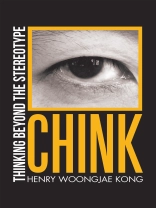Henry Kong takes on the clash of cultures in a nuanced study of what it means to be Asian American.
Underlying the prejudices and misunderstandings that Asian-Americans face are deeper issues of alienation and belonging. For many, being Asian in the West is to be caught in between, rather than being both at the same time.
Chink provides a provocative perspective on the genetic and cultural basis of racial identity by focusing on issues such as:
Are Asians smarter, less innovative, or more feminine than other races?
How hurtful is affirmative action to Asian American students? How hurtful is the absence affirmative action to Asian American athletes and actors?
Why are there so many more Asian female-white male couples than Asian male-white female couples?
What exactly is the biological validity of race?
As America seeks to come to terms with its long-held prejudices, the topic of Asian Americans seems to fall by the wayside. This book offers a critical and much needed look at a neglected topic.
O autorze
Henry Woongjae Kong, a native of Seoul, South Korea, immigrated to the United States of America at age five and graduated from MIT and Rutgers Medical School. He has lived in Mississippi, South Carolina, California, New York City, and Oxford, England. He is a physician and the author of More Self than Self: At Autisms Edge and Root of Thought: Reflections on Neuroscience. When not writing books and practicing medicine, he enjoys traveling and competing in triathlons. He lives in Toms River, New Jersey.












